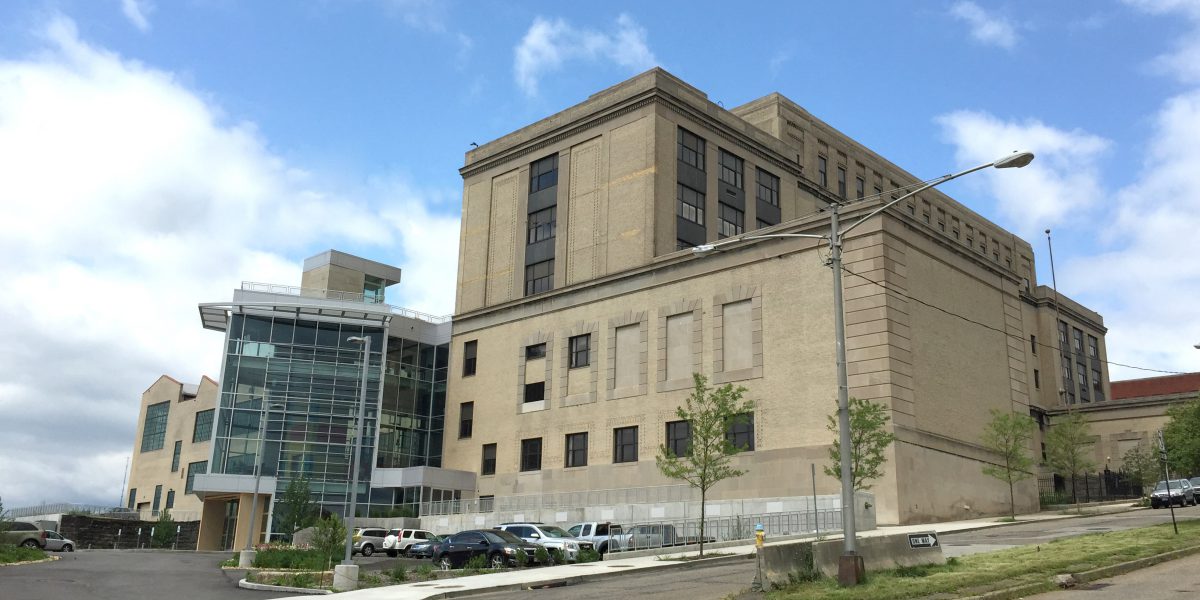The University of Pittsburgh and its Swanson School of Engineering are set to begin an expansion of engineering, energy research and entrepreneurship at the Energy Innovation Center (EIC) in Pittsburgh’s Hill District.
The 18,600-square-foot laboratory and incubator – which will occupy more than one-fourth of the EIC’s Central Lab area, making it the largest tenant – represents Pitt’s initiatives to provide more flexible, large-scale space for energy research and to encourage partnerships with industry.
“This is a great opportunity for the University,??? said Pitt Chancellor Patrick Gallagher. “Developing this kind of partnership is a priority for us and has the added benefit of strengthening our ties with the Pittsburgh community.???
The EIC, developed by Pittsburgh Gateways Corporation in the former Connelly Trade School, is designed to engage corporate and community leaders, align workforce development and education, develop and demonstrate technology, and incubate businesses to support emerging clean and sustainable energy markets. The facility provides Pitt with more space than currently available in Oakland or at the Swanson School’s Benedum Hall of Engineering.
“Building out laboratories and incubator space at the EIC will facilitate large-scale research and more industry partnerships,??? noted David A. Vorp, Associate Dean of Research and Professor of Bioengineering at the Swanson School. “These partnerships help to advance research already underway at Pitt as well as to identify new revenue streams for more opportunities. As government funding tightens, engagement with industry is a critical factor in developing new technologies.???
Many of the research opportunities pursued by Pitt and the Swanson School are in a diverse number of energy-related fields. Gregory F. Reed, Director of Pitt’s Center for Energy and Professor of Electrical Engineering, said that Pitt is poised to expand its reach in energy and electric power, thanks to the additional space.
“As we advance in areas including high voltage direct current, energy storage, transmission and distribution, microgrids, and materials, we’re looking at technologies that require a great deal of space and infrastructure, more than we can access on campus,??? Dr. Reed said. “The building’s history as a vocational school gives us good bones to build upon, and enables us to pursue technologies that will set Pittsburgh on the leading edge of global energy research.???
The laboratories will include:
- The Next Generation Energy Conversion and Storage Technologies Laboratory, headed by Prashant Kumta, Professor of Bioengineering, Mechanical Engineering and Materials Science, and Chemical and Petroleum Engineering, focuses on energy conversion and storage including high energy and power density rechargeable battery systems, photoelectrochemical systems for harnessing solar energy for water splitting, and high power density charge storage systems.
- The Electric Power Technologies Laboratory, led by Dr. Reed, will focus on advanced electric power grid and energy generation, transmission, and distribution-system technologies; power electronics and control technologies; renewable energy systems and integration; smart grid technologies and applications; and energy-storage development.
- The High-Temperature Corrosion Testing Laboratory, led by Brian Gleeson, Professor and Chair of Mechanical Engineering and Materials Science, focuses on the assessment and development of materials needed for harsh service environments. The EIC allows Dr. Gleeson to relocate his lab from Iowa State University to Pittsburgh.
Lastly, the Pitt Incubator Laboratories, developed by Vice Provost for Research Mark S. Redfern and the University’s Innovation Institute, will provide affordable space for start-ups launched by faculty and students at Pitt.
“Engineers can be natural entrepreneurs, but when they are starting out they need to focus less on paying the rent and more on innovation,??? Vice Provost Redfern said. “By hosting the incubator space, we can allow them to potentially create Pittsburgh’s next successful startup.???
Construction has begun on Pitt’s EIC space, with anticipated completion in fall 2016.
Source: engineering.pitt.edu

